“They didn’t come here to finance the schools, the roads, or the clinics. They only came here to take the logs and go. They won’t even keep the promises you made with them,” says Andrew Thada, a member of the Anglican Society of Saint Francis. As a traditional leader in the Solomon Islands, he is affectionately known as “Brother Suicide” in his community due to his habit of picking fights with the authorities. In recent years, this meant opposing the logging companies that are operating in the hills near his village on Guadalcanal.
“Before if you planted food, you would enjoy it growing: the wild pigs wouldn’t come down from the forest and eat it. The fish in the river, before you could dive in and catch them. Now you can’t take anything from the river,” he explains. “Even the vines that we use to tie our leaf houses have disappeared because the machines destroyed them all. So that’s the difference between before and now – before, we enjoyed everything in the bush. Now, no.”
Large-scale industrial logging has affected all aspects of life for communities living near the harvesting sites in the Solomon Islands. As the forests disappear, so do traditional sources of food and medicinal herbs. The heavy equipment shipped to cut down the ancient trees has introduced invasive species that are now devastating crops. Disputes over land ownership and a sudden influx of money fuel conflicts between neighbors. Young women and girls have fallen victim to trafficking and exploitation by foreign loggers looking for companionship.
However, perhaps the most profound impact has been on the water. As Pacific islanders, the people of Guadalcanal have a deep connection to water – both to the salt waters that surround them and the freshwater that sustains them. The Solomon Islands are now facing a situation where freshwater supplies are dwindling while rising sea levels threaten to engulf communities. Logging is exacerbating both problems.
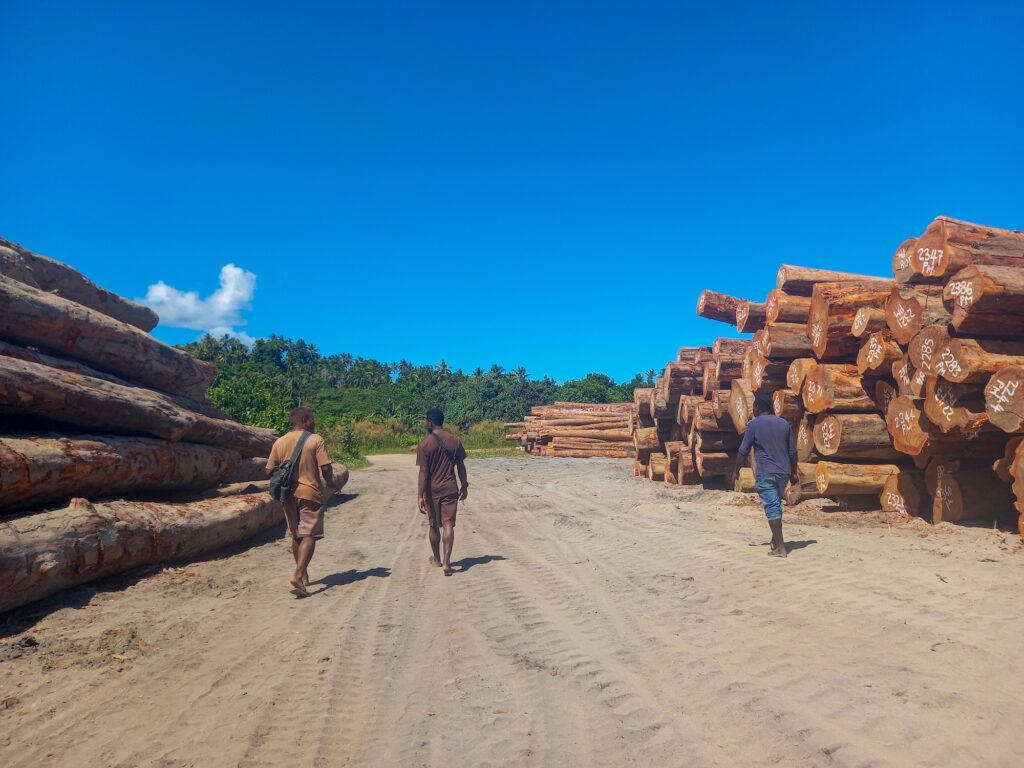
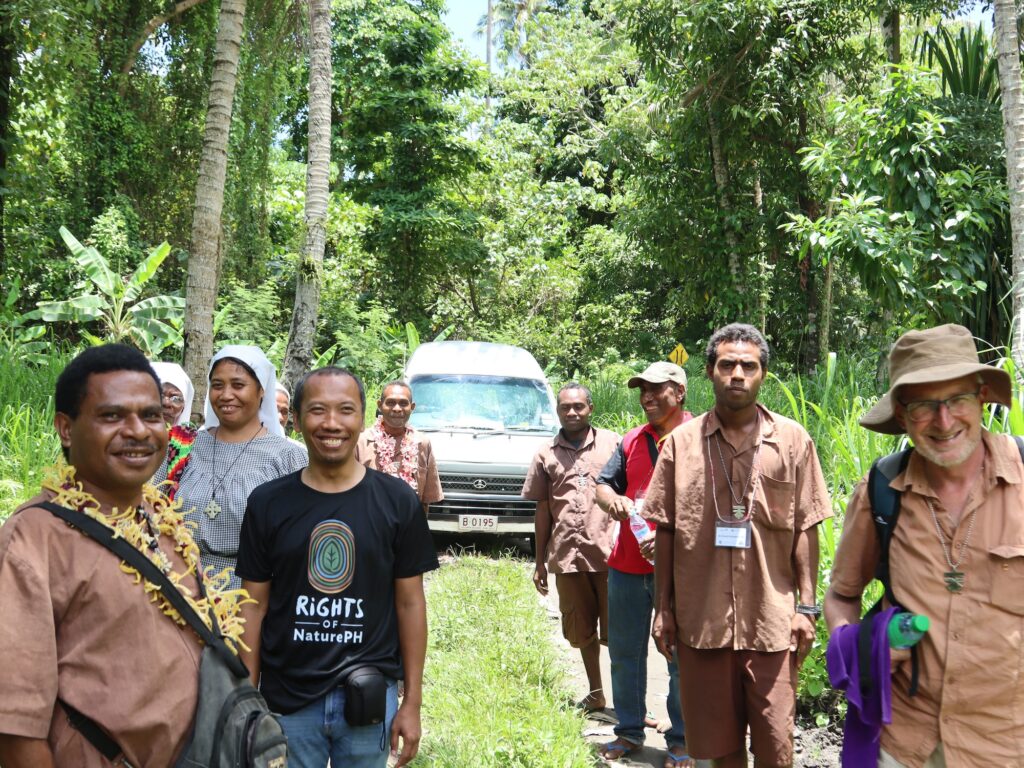

These consequences were also felt deeply by the brothers of the Society of Saint Francis, who often saw these problems happening to their own families and friends. “People like telling stories. So even without asking, ‘What is the situation with logging here?’, we began hearing stories. From there, we continued to have those conversations and try to help them,” says Brother Worrick Marako SSF, the Minister Provincial of the Solomon Islands. “Through my observations, I’ve seen many struggles in the places where logging is happening. But even from the places I never visited, I still hear the same complaints.”
The brothers approached the Anglican Sisters of the Church and the Catholic Dominicans to expand their reach and to start documenting the harm caused by logging together. They took their findings to the authorities, but the reality is that most timber is not used domestically. After the trees are cut down, they are immediately taken to the shores and loaded on barges to be shipped abroad. Because the Solomon Islands is only the first link in a large, global production chain, they decided to take their case to the international community.
In 2020, with the help of Franciscans International and the Dominicans for Justice and Peace, they submitted their findings in a report to the Universal Periodic Review, a UN mechanism through which the Member States examine each other’s human rights records on a rotating basis. When this happens, the UN also looks at the information that is provided from the grassroots by civil society organizations including Franciscans International. In part based on this, countries offer each other recommendations and support to address human rights challenges. To make sure that the findings in their report were heard, the Sisters and Brothers spoke to 16 different embassies in the Solomon Islands while FI lobbied diplomats at the UN in Geneva.
This joint report clearly laid out the destructive cycle through which logging affects all water resources in and around the Solomon Islands. Often entire hillsides will be destroyed to extract just a few large trees. The rest of the wood is used to construct slipways to transport the trees. These are routinely doused in diesel oil, which pollutes the ground and freshwater supplies. In many villages, parents report that their children started suffering from skin rashes after swimming in the rivers and creeks. Within a few years, the polluted soil also becomes infertile and starts to erode.
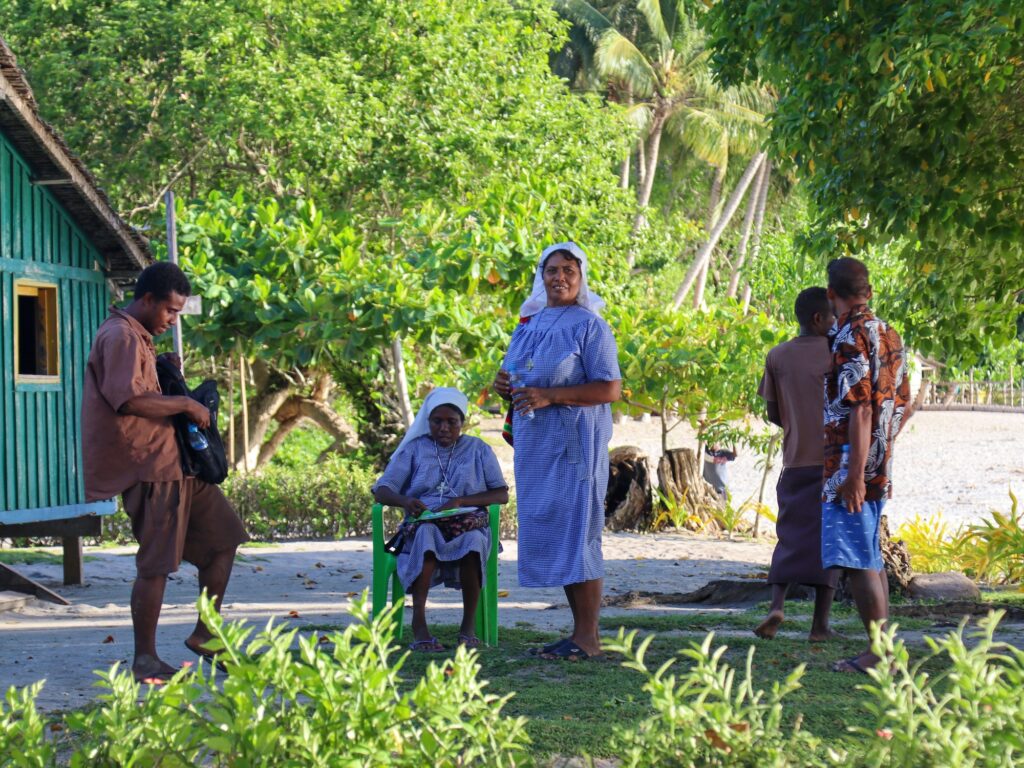
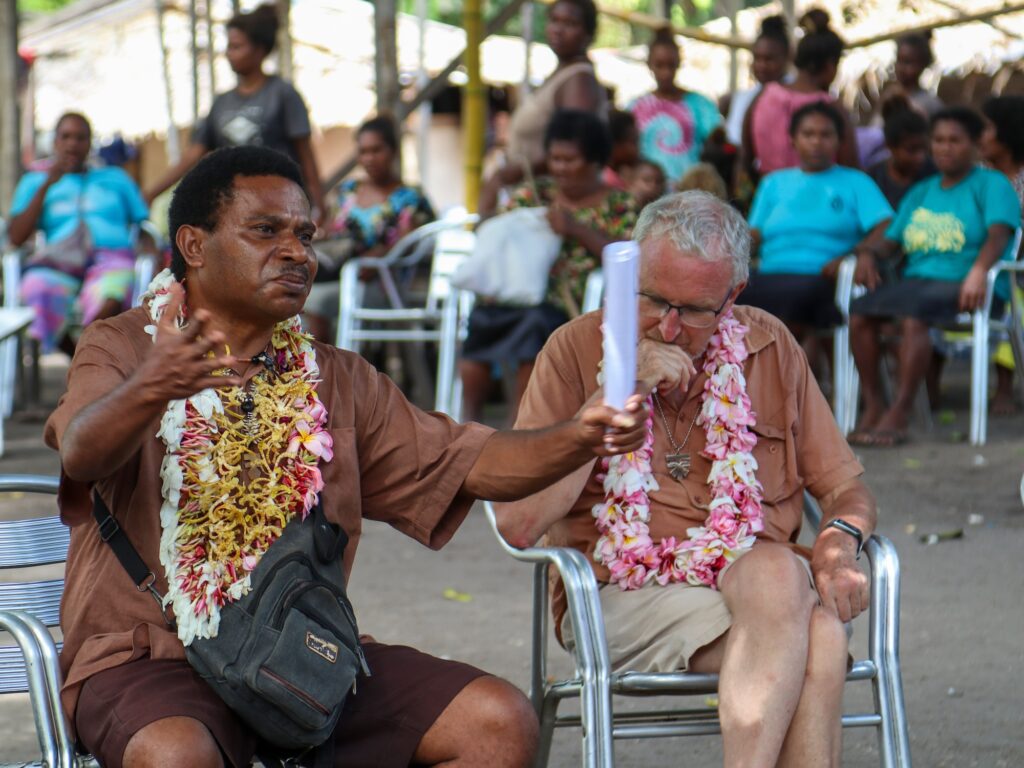
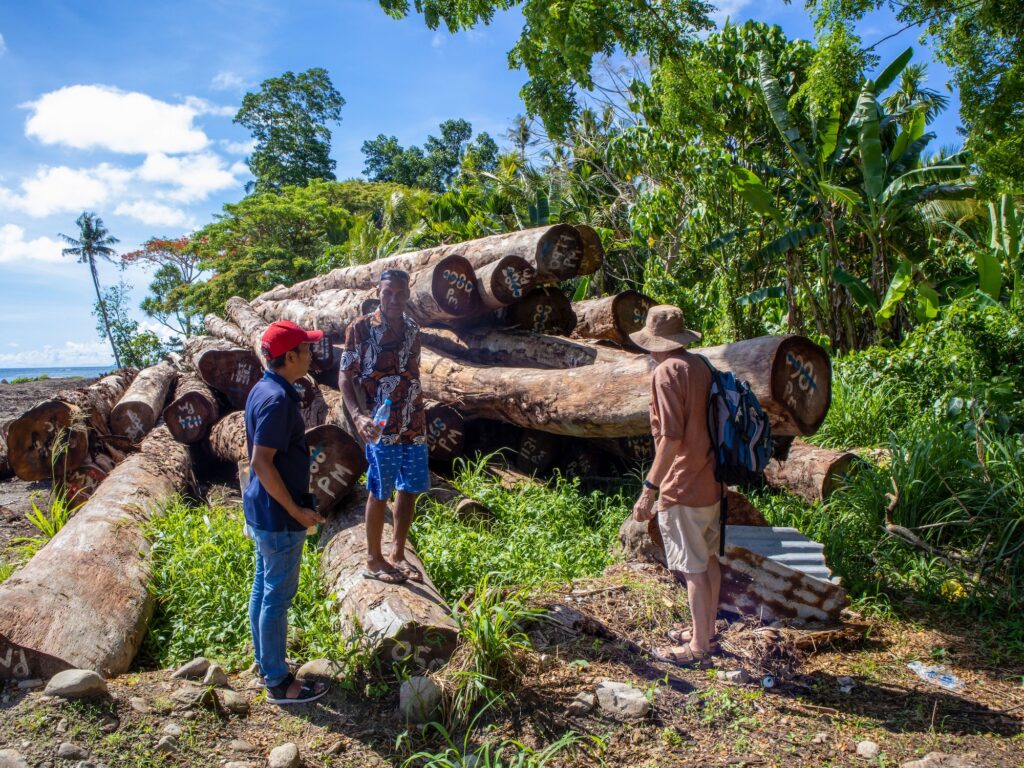
“The law says logging should happen at least twelve meters from the streams, but the loggers come in closer,” says Brother Andrew. “When a company moves into an area, all the small streams that come into the big rivers are blocked. And then come the floods.” With the natural irrigation channels clogged up, flash floods have become more common during the rainy seasons, washing away roads, bridges, and buildings alike.
From the hills, it is only a short way to the sea. After polluting the streams and drinking water, the erosion causes sedimentation of coral reefs near the coast, killing off the fish populations that people have relied on as a source of food for centuries. The barges used to collect the timber further damage the corals. As the reefs disappear, so does the protection they offer from the pounding of the ocean waves, adding to the problems of sea levels that are rising due to global warming.
At the end of its 2021 review, the government accepted several recommendations related to logging – essentially promising in front of the international community that it would try to address these problems in the next five years. After that, the Solomon Islands will undergo another Universal Periodic Review. For the Franciscan brothers and their allies, these outcomes are important because they now have concrete benchmarks that they can use to approach authorities to demand action and accountability.
In October 2022, the Franciscans and Dominicans decided to visit some of the communities to assess if the commitments made were indeed implemented. During a series of focus group interviews, where they talked to community leaders, women, and youth, they found that little had been done. Not only was the government falling behind, but the logging companies themselves had broken many of the promises they made to communities when they moved into the area.
Based on their findings, they produced another publication that identified not just the most common problems in each village, but also linked these back directly to the promises made by the government at the UN. Combining the insights gained from these conversations, they also put together concrete and immediate steps that authorities can take. With this, they are again lobbying the leaders in the Solomon Islands to act, including by presenting the report to the governor-general.
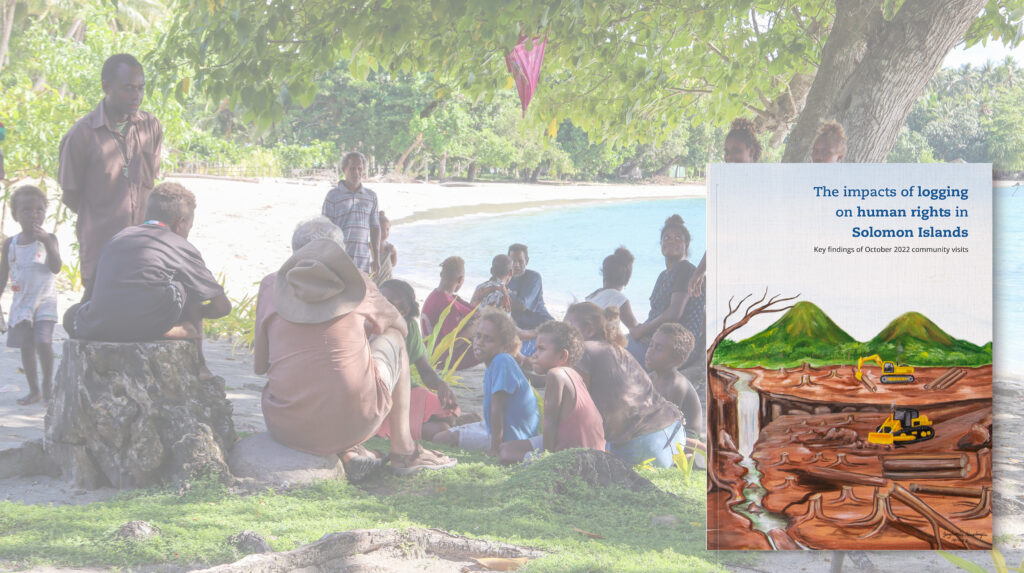
To ensure that the affected communities can benefit from the report as well, the Franciscans also translated it into the local Pijin language. Meanwhile, the brothers have started to integrate awareness raising about the impacts of logging. Every year, they spend several months visiting communities across the different islands. Through creative means like theatre, they teach people about their rights to stand up to the logging companies.
“After many years, I feel that people still have hope for the generations to come, even though rivers are drying up and climate is becoming hot. Many have already become educated and know the effects of climate change, logging, mining – everything,” says Brother Worrick. “So, it is my hope that in the future people will begin to make the right decisions.”

